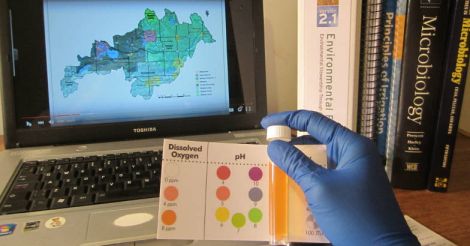The discipline of biological or life sciences has undergone rapid transformation over the past few decades. Academic and research institutes along with all major funding agencies across the globe have been focusing on new and emergent branches of the discipline such as biotechnology, bioinformatics, synthetic biology, molecular biology, molecular genetics, biomimetics, tissue engineering, organ culture to name only a few.
Also read: Call of the Wild | A ‘buzz’ on our insect pollinators
As a consequence, traditional branches of biology such as zoology, botany, physiology and related subjects are sidelined and loosing relevance in modern day science and technology and in areas of advanced research and major or minor support for research funding. The discipline of environmental science has also reached great heights over the past three decades; and new and traditional disciplines have merged and/or overlapped across academia to cater to the needs of our time with respect to environment and ecosystem research. It is interesting to note that over 50-60 percent of research and review articles related to biology are published in each and every top rated international multi-disciplinary science journals around the globe.
Also check: Call of the Wild: Conservation challenges in SAARC nations - Part III: case studies from Afghanistan
 The fear of not having any jobs on completing a college/university career is pushing several potential and talented students to move out or not to opt for traditional subjects like zoology or botany. Photo: Getty Images
The fear of not having any jobs on completing a college/university career is pushing several potential and talented students to move out or not to opt for traditional subjects like zoology or botany. Photo: Getty ImagesMost of these biology articles are related to ground breaking new technologies dedicated to new and emergent branches of biological or life sciences suggesting close collaborations between leading biologists, engineers, information technologists, neuroscientists, chemists, biochemists, drug designers, physicists, microbiologists, medical doctors, ecologists or behavioral or brain researchers. Although such inter-disciplinary research collaborations are greatly appreciated, welcome and is the call of the hour; I would like to highlight a very dismal picture of the other side of the coin in this article and try to establish why this is important.
The strong emphasis on certain disciplines at times often unfortunately undermines the relevance and importance of other subjects and disciplines that come back and haunt us later. The loss of emphasis on traditional biology disciplines like zoology and botany has other serious implications for our future too. These subjects for decades have trained plant and animal taxonomists who have been responsible for identification of many of the species that we see around us. Various disciplines and sub disciplines within the realms of animal and plant taxonomy have contributed for decades in the discovery, identification and scientific description of new species around the globe. Even to these days of push for molecular biology and biotechnology; both Zoological and Botanical Surveys of India and their global counter parts in other countries, employ thousands of scientists and researchers trained in various branches of taxonomy. Such institutes are also responsible for training and producing more such young experts for our future conservation needs. But the important point to note is that if the basic supply line is truncated what does the future hold for us?
It is no longer easy for people trained in traditional disciplines to find a job both within and outside academia. A molecular biologist or bio technologist may find a job at our universities or colleges or even in the emergent biomedical or biotechnological industries; but where will a highly trained taxonomist go to find a job? The big survey houses in India no longer hire people in bulk numbers as they used to do in the past. Several departments have been plagued with acute shortage of trained taxonomists who can help in proper identification or revision of species.
 Every nation that is rich in natural resources need a steady supply of plant and animal taxonomists, ecologists, geologists and related experts. Photo: Getty Images
Every nation that is rich in natural resources need a steady supply of plant and animal taxonomists, ecologists, geologists and related experts. Photo: Getty ImagesPeople from unrelated disciplines or even little or no training are being pushed to cater to the urgent needs of one department while handicapping their original home department. This is not the story of India alone; but a serious incidence happening in other countries too. The fear of not having any jobs on completing a college/university career is pushing several potential and talented students to move out or not to opt for traditional subjects like zoology or botany. This is indeed a huge national as well as international loss to the process and approaches of successful conservation of forests and wildlife and above all biodiversity.
Every nation that is rich in natural resources need a steady supply of plant and animal taxonomists, ecologists, geologists and related experts. But how many places in India or matter of fact abroad does one can get an opportunity to study geology; whereas geography is popular and bread earner and available in a large number of academic institutes. Several leading universities in the world have been forced to merge geology and geography for their economic sustenance.
This is indeed sad and needs our immediate attention! Disciplines under agriculture like economic zoology, economic botany, soil science, plant breeding etc are being seriously pushed and pathetically neglected around the globe and needs to be reviewed before we can wash our hands off them. This will certainly come back and burn us one day; when we will be depleted of experts in such traditional disciplines.
 Successful conservation of natural resources needs the active support of each and every traditional as well as modern discipline for identifying, categorizing, recording our rich global biodiversity resources. Photo: Saikat Kumar Basu
Successful conservation of natural resources needs the active support of each and every traditional as well as modern discipline for identifying, categorizing, recording our rich global biodiversity resources. Photo: Saikat Kumar BasuSuccessful conservation of natural resources needs the active support of each and every traditional as well as modern discipline for identifying, categorizing, recording our rich global biodiversity resources. With DNA barcoding and other molecular forensic techniques at our hand, one may think that the need for trained taxonomists has come to an end. But that is a myth. I am worried that we will run out in the long run of such highly trained individuals like animal and plant taxonomists in our survey teams and conservation programs around the globe.
It is time for us to reflect and look into the pros and cons of over emphasis and no emphasis on specific disciplines for our own interest and future. It is important for the policymakers and educators to redesign course curriculum and adapt to changes of our time; but at the same time retain the necessary parts of traditional disciplines to cater to our future needs. The saying old is gold is not just a phrase but has a much deeper meaning than we like to imagine.
(The author is a Canada and India based freelance journalist specializing in global geo-political, strategic and foreign policy issues, science & technology and environment & conservation related themes.)

























 It is important for the policymakers and educators to redesign course curriculum and adapt to changes of our time; but at the same time retain the necessary parts of traditional disciplines to cater to future needs. Photo: Getty Images
It is important for the policymakers and educators to redesign course curriculum and adapt to changes of our time; but at the same time retain the necessary parts of traditional disciplines to cater to future needs. Photo: Getty Images